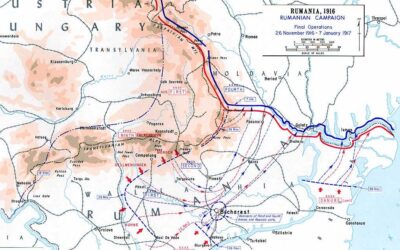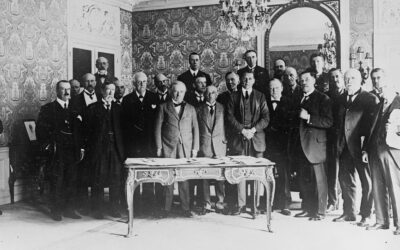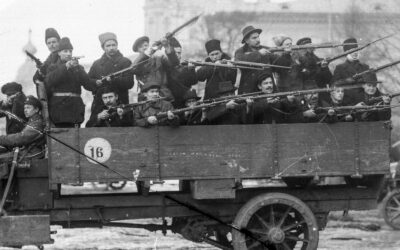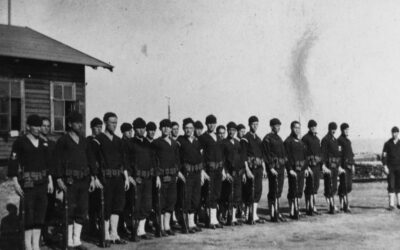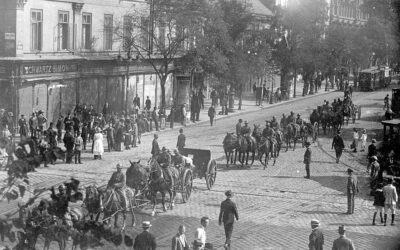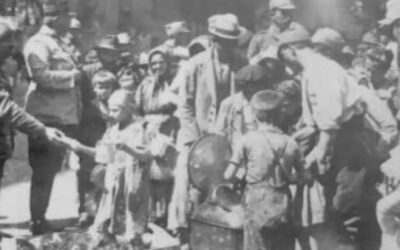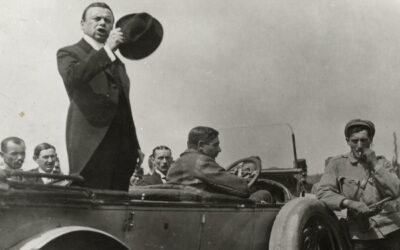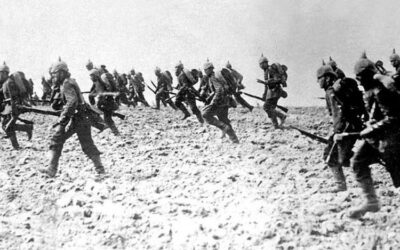What did Romania risk and what it had to gain if the war continued in 1918?
The decision of the Russian Bolsheviks to conclude peace with the Central Powers exposed Romania to a dramatic situation. Either continue the war alone with the Central Powers, without having the possibility to be resupplied by the Entente, or, as it happened,...
Winston Churchill in 1919: “Of all the forms of tyranny in history, Bolshevik tyranny is the worst, most destructive and degrading”
Winston Churchill, who during the 1919 Paris Peace Conference was the British Secretary of State for War and Air, was one of the few Allied leaders who understood that Lenin and his Bolsheviks were a new phenomenon on the political scene and that, behind the Marxist...
Was Bolshevism a danger to Western countries?
The installation of the Bolsheviks at the helm of Russia in late 1917 would pose a real danger to Eastern European countries, but the virus continued to spread to other European countries. How much of a threat was Bolshevism to the victors of the First World War,...
The Allied Intervention at Archangel and Murmansk in 1918
In 1918 the United States entered the Russian Civil War on the side of the so-called “Whites,” anti-Bolshevik counterrevolutionaries. This essay explores the decision to intervene at Murmansk and then Archangel, the U.S. Navy’s role in the operations, and the ultimate...
The Allied military intervention in Bolshevik Russia
The signing of the armistice in Brest-Litovsk between the Russian Bolsheviks and the Central Powers forced the Allies to intervene militarily in Bolshevik Russia. Although they knew little about the Bolsheviks, the Allies feared that Germany would have access to...
The evacuation of Budapest: The withdrawal of the Romanian army (IV)
General Holban, the military governor of the capital, appeared before the generals of the Inter-Allied Military Mission with the evidence of a military conspiracy directed against the Romanian army, involving even prime minister Friedrich Istvan. General Bandholtz had...
Backdoor politics in Budapest: Hungarian propaganda and Romania’s war reparations (III)
Hungary’s domestic policy was left to Hungarian politicians, giving them wide autonomy, although they were still under occupation. They took advantage of this freedom and sought to discredit the Romanians, blaming them for all the ills of the country. Undoubtedly,...
The occupation of Budapest: Hungary’s capital under Romanian administration (II)
Major Nancovici, an envoy of the Romanian commission in Budapest, drew up a brief report on the state of the Hungarian capital after the first few days of occupation. Surprisingly, while people were starving, the Bolsheviks had gathered in the ”Hungarian Discount and...
The march on Budapest: The fall of Bolshevik Hungary (I)
Bela Kun’s dictatorship lasted for half a year. Half a year in which the policies of the Bolshevik regime ruined the country. In a last ditch effort to regain popular support, the dictator rallied his armies against the Czechoslovaks and Romanians, wanting to take...
What do the German campaign in Romania in 1916 and the Blitzkrieg against France in 1940 have in common?
In the Romanian military campaign of the Central Powers in 1916, German forces used a technique that later, in the Second World War, would be known as Blitzkrieg. Today, the Blitzkrieg is normally associated with the Second World War, mainly with the first campaigns...

